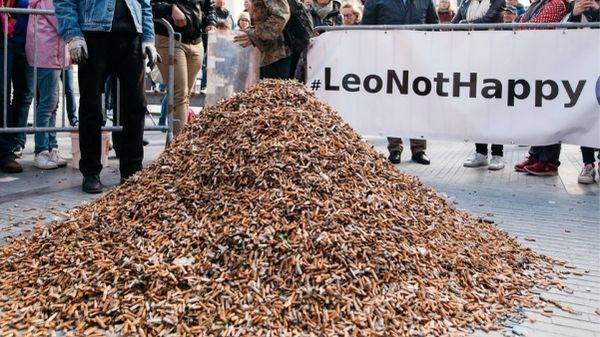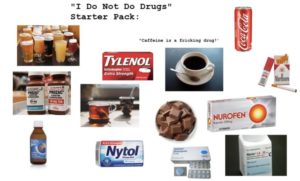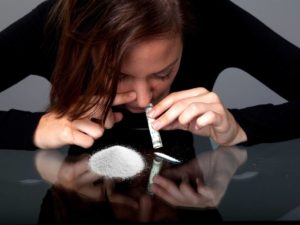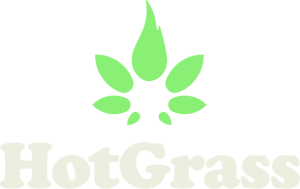You know these people? The anti-cannabis types who are strictly no drugs, thank you very much. They tell you so over dinner with a beer in their hand. They take a pill at the first sign of a headache, nail caffeine to get them up in the morning, vitamin D in the winter and nicotine on their lunch break, sugar when they feel a little dip and Xanax when it all gets a bit much. Their anti-depressants keep them engaged and their sleeping pills get them a full night’s rest. Let’s break down a few of these things we don’t like to call drugs.
Tobacco
No substance humans regularly consume comes close to tobacco in terms of deadliness.
Vox summed it up nicely:
“…more Americans die from tobacco-caused health problems like lung cancer and heart disease than from reported drug overdoses, car crashes, and homicides combined.”
Tobacco kills more than 8 million people each year. If a nation was doing that, we would be at war with them. If a virus did that, we would bring the world to a standstill to stop it. But because cigarettes are just part of the fabric of society, this is somehow okay. Why? Because adults choose to smoke? Because tobacco companies make truckloads of money and all of that profit trickles down to the right people, up to and including the taxman? Seems like it.

Image from Shared.
We searched extensively online for the death toll that cannabis has taken on the world. Despite endless vilification through the decades, thanks to the likes of Harry Anslinger, there are barely any reported stats that cannabis kills. The worst we could find is in the CDC’s incredibly extensive list on causes of death, where potentially 156 people die from cannabis use every year. Maybe. Beyond that, reports are spotty at best. Scientists can’t seem to find any way cannabis can kill you short of being run over by a truck filled with it or choking yourself using a sativa plant.
Nicotine is a chemical you smoke that relaxes you. It’s also chemically addictive, unlike cannabis. 4000-7000 chemicals in a cigarette, 250 of which are harmful, with 69 directly contributing to cancer. But the medicinal plant you grow, dry, then smoke is illegal across the world. Seems logical.
Alcohol
It’s perfectly socially acceptable to drink all the time. But why? Because we always have? Because everyone does it?
If alcohol is a drug, and an overdose is a dangerous or excessive dose of a drug, then every awful hangover you have means you overdosed on alcohol. Isn’t it strange when you look at it through that lens?
Alcohol abuse reportedly kills 3 million people per year. You know why we don’t have headlines like that about cannabis?
Alcohol and nicotine are ranked up there alongside cocaine, meth, and heroin as some of the hardest substances to kick. Cannabis is not chemically addictive.
Related: Seth Rogen On Weed Advocacy, Racism, and the Dangers of Alcohol

Caffeine
If you’re one of those “Don’t talk to me before my coffee” people, you’re probably a drug addict. Caffeine is the most widely consumed psychoactive compound worldwide. It’s an addictive stimulant that’s like cocaine light but we all readily consume it, build up a tolerance, and often can’t get through the day without it.
Sugar
Some studies have suggested that sugar is as addictive as cocaine. Chugging cans of soda, throwing spoonfuls over our cereal, dumping several cups of the stuff into a recipe: overdoing it with sugar is completely normalized. But when we eat sugar, it releases opioids and dopamine in our brains. Dopamine is released from the reward centre of our brain to encourage us to get things done. It’s pleasurable high, and so we’re inclined to do the same thing again. This is how addictions form.

So, you might think you’re filling your shopping trolley with brownies, doughnuts, and chocolate out of choice. Really, your brain has been tricked into eating these damaging foods by an addiction that’s perfectly legal to indulge in.
Your Mobile Phone
Yeah, we’re not done with dopamine just yet. Your phone has hijacked the reward circuit in your brain to keep you coming back for more. Notifications: little dings, colourful numbers, the promise that someone wants your attention… big tech has studied the effects of these things and caught us all in its web. Just watch when you’re in a restaurant and one person takes their phone out. A domino effect takes place, with everyone remembering the little stimulation machine in their pocket, then grabs theirs to take a hit. In the 90s it was the same with cigarettes.
Anti-Depressants
Stress, anxiety, depression, PTSD, trauma recovery, restlessness, insomnia: if you’ve found relief from any of these things through SSRIs/anti-depressants/anti-anxiety medication, we salute you. That’s excellent. Many people use cannabis for relief from the same conditions. Both have side effects that don’t agree with certain people.
Where do we go from here?
We could go on. Everyone has a drug. Some people are addicted to our jobs, to earning money, to gaining followers, to fatty foods, to buying stuff we don’t need, to sex. Everyone does something to an unhealthy degree, despite mounting consequence. That’s the definition of addiction.
This started out as a finger-pointing exercise, trying to get on a high-off-its-face horse and judge the judgemental. At the end of writing it, I’m just tired. This article kind of encompasses everyone, at least in the western world. The overarching message here isn’t our hypocrisy, our differences, or our shame. It’s our sameness that we should acknowledge. We’re all human. We’re all trying to get through the day. And we all use substances to get us there, whether consciously or not. Some of them are legal, some aren’t.
Maybe it’s time we looked at the deeper issues beneath our substance misuse. What aspects of 21st century living have brought us to this point? Why are we depressed, exhausted, in pain? What are we trying to numb with alcohol and nicotine and weed? Whether they kill us, damage our brains, or lead us to incarceration, we continue to do these things. Wherever you stand, it’s quite clear that our endless use of substances points to much deeper problems.
I’ll leave you with this quote by addiction medicine specialist Dr Drew Pinsky.
“I hate this idea of “good” drugs and “bad” drugs. There’s no such thing as a good drug or a bad drug. There’s this chemical that’s neither good nor bad, it just exists, we either created it or it exists in nature, and then it’s the relationship that humans have with the substance that is the issue.”
If you’re struggling with addiction in Canada, you can find help at these resources. We wish you all the best.
